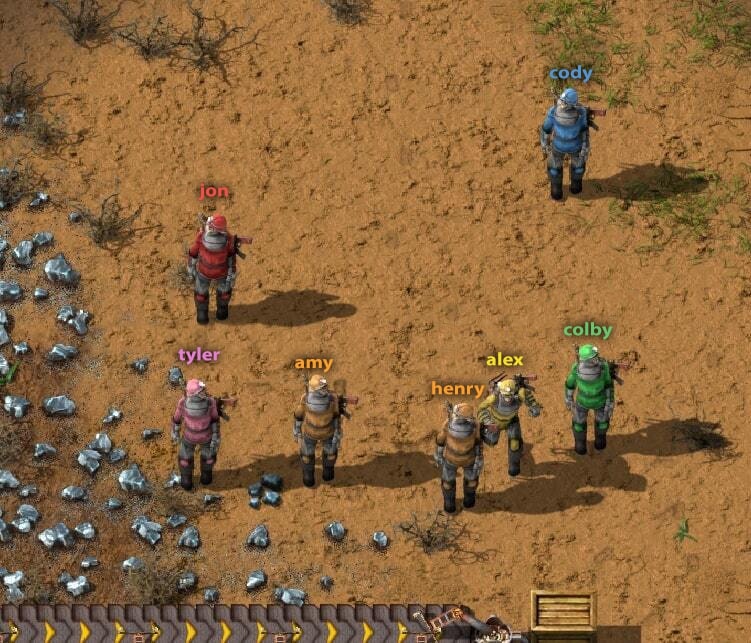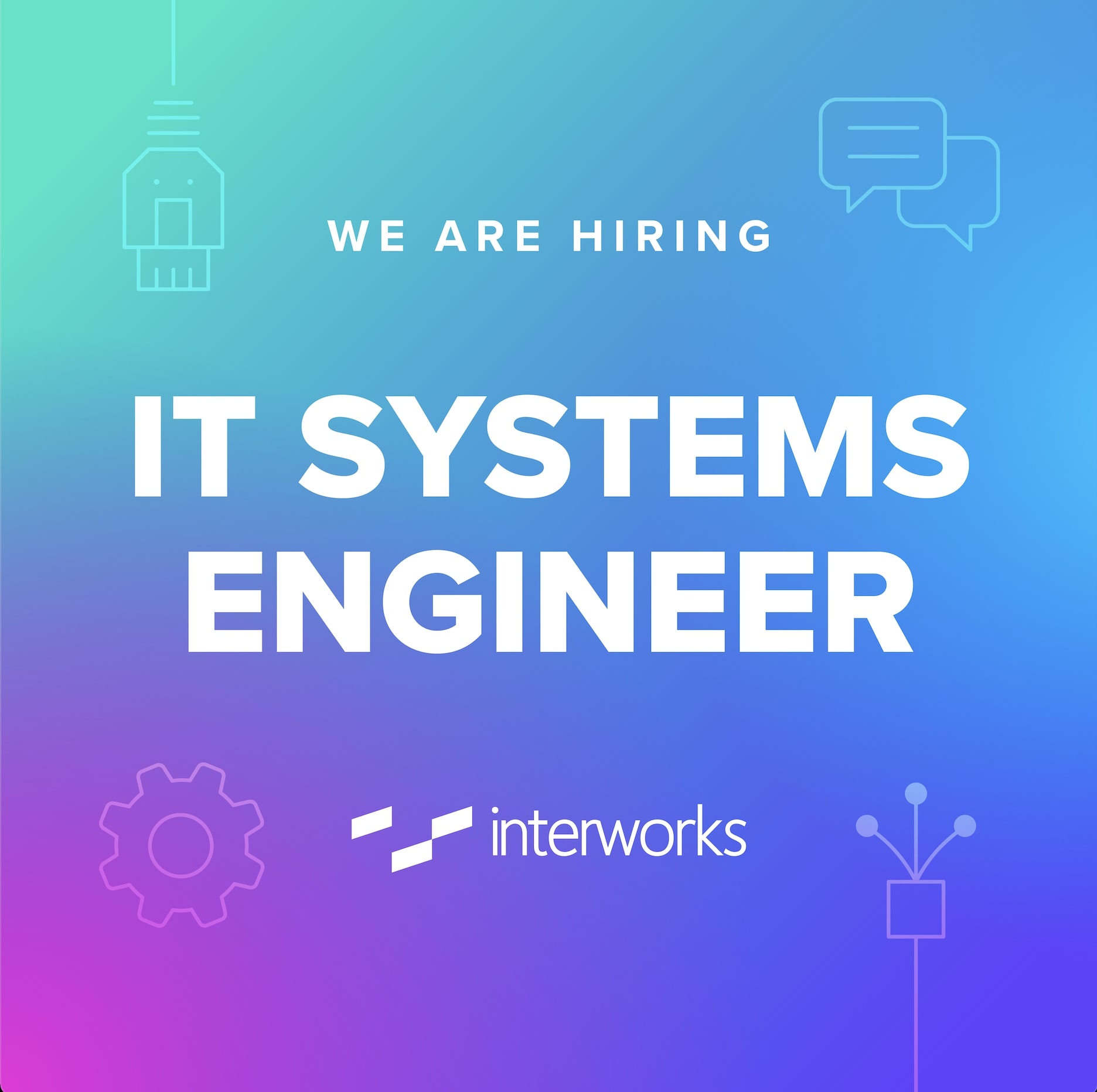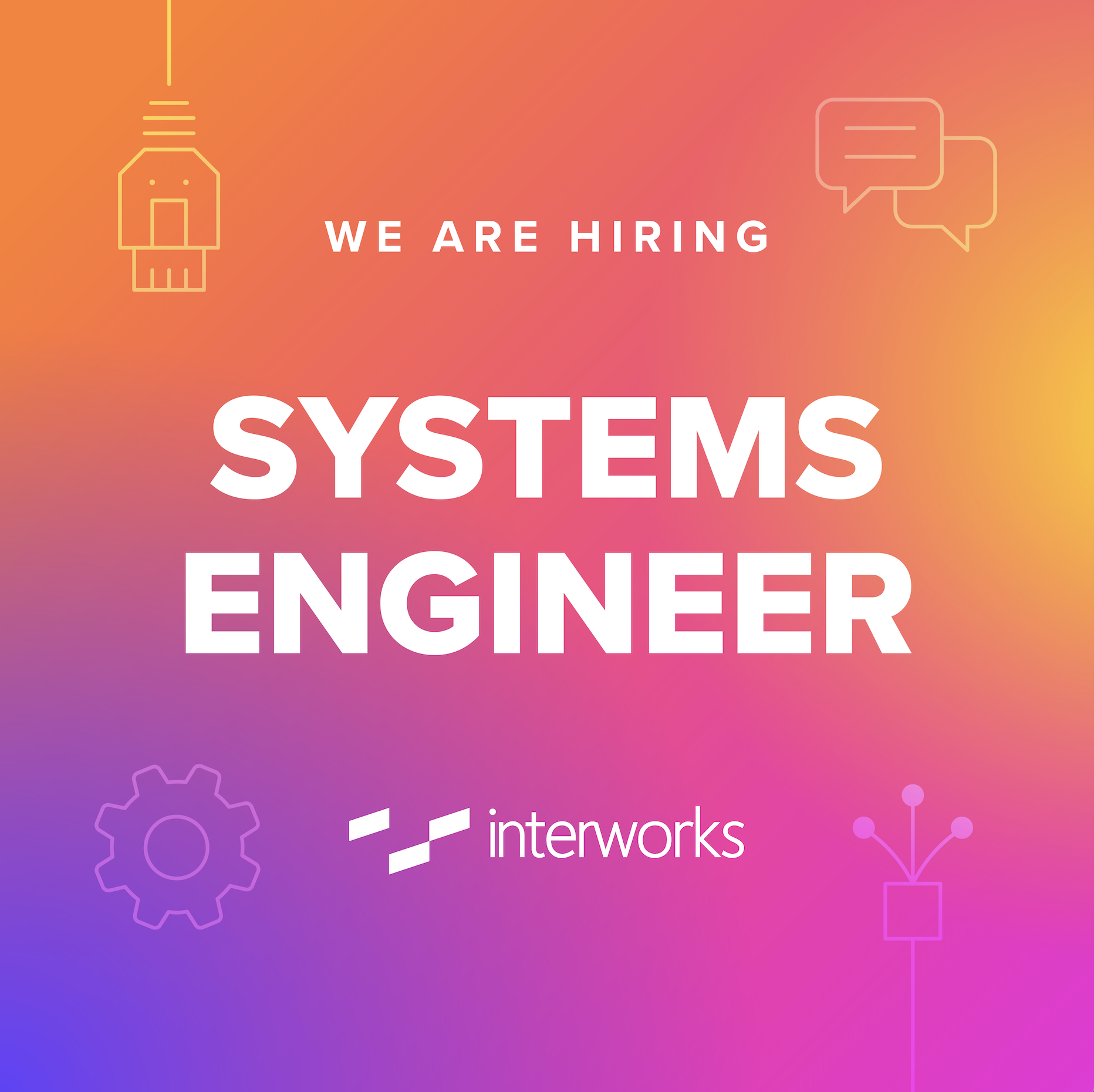Go behind the scenes of the day-to-day responsibilities of InterWorkers and get a glimpse of our unique company culture.
I recently caught up with Amy Finley, InterWorks IT Lead, to talk about her role and why her team is one of the best around. As the ServerCare Operations Lead, she oversees and supports her team in their work managing and monitoring client servers and other infrastructure frameworks. Check out our conversation to get a practical glimpse at life at InterWorks and on Amy’s team.
Q: First things first: how would you describe your role of IT Lead?
I am the person who looks out for my team. My job is to walk the line and balance my team’s responsibilities to make sure that everyone is getting their stuff done but not burning themselves out, while simultaneously making sure customer needs are being met, and none of them are feeling ignored or neglected. In the broadest sense, my main responsibilities are protecting both my clients and my people.
Q: How has the pandemic affected you and your team in the work you do?
We were already pretty remote with one team member located out of state. Our team meetups and meetings were already virtual, so I’ve continued the trend of finding different ways we can connect online, like playing a video game together or something similar. I try to find creative ways to interact with each other that apply to all of our general interests. In terms of client work, all of our clients are already remote, so the transition to WFH was pretty easy for us.

Above: Amy and her team members playing Factorio together during a recent virtual meetup
ServerCare: Your Environment in Expert Hands
Q: What does the day-to-day of your role look like?
It’s a cliché, but it’s true: No two days are ever the same. A lot of what I do is escalation for my team, so whenever they need something, they call me and I jump in to help. I spend a lot of time auditing what’s on my team’s plates—again, working to ensure they’re protected and taken care of in their work— and looking at the logistics of delegation, balanced workloads, etc.
I also spend a lot of time working on documentation and building out the actual processes of ServerCare. I work through what we do, how our processes practically work and think about what we could do different to make ServerCare more efficient or better strategized for clients. I spend time on calls with clients, account executives and go-to-market teams and discuss ServerCare, its benefits, how it’s functioning in different regions and making sure everyone has what they need to best serve their clients.
Q: What is something you’re proud of in your work?
Last summer, we took our team from three people to six people, doubling in size, which was super exciting. We onboarded these three new employees while simultaneously adding 10 new clients. As the team lead, it was my responsibility to onboard those new team members and those clients, get the team set up with them and ensure everything was settled and stable.
Q: What’s something you really enjoy about your work and your team?
What I enjoy most about the work we do is: getting to help our clients and build genuine relationships with them. Just recently, a client who had an outage reached out for some urgent help. Even in the midst of that serious disruption, he paused and asked how I was doing since it had been a while since we’d talked last. Even though the reason he called was not such great news, it was good to talk again. I really like getting to build those relationships with clients and be the person there to help them find an answer when no one else is helping them.
What I enjoy most about my team is: I have the best team out of the entirety of InterWorks … in my completely unbiased opinion. Everyone is always there for each other and ready to help out. More often than not, it’s harder to get them to log off than it is to get them to take on responsibility. When someone needs something covered, we always have several people volunteer to take on that extra work. We have a great rhythm going for how we operate and work together. Whenever new processes or procedures come in, I always talk to the team before making any decisions. I want it to be our choice, not my choice. That collaborative team dynamic is created because everyone really respects and enjoys each other.

Above: Tyler and Amy with IT colleagues Lindsey and Todd at the 2021 Tulsa Holiday Party
The Importance of Being Seen and Valued
Q: What is it like being the only female IT Lead in a technical role?
It’s been good. I think I’m bringing in a new perspective. I’m hopeful to bring more women into IT and get even more involved and be example to other women to show them that if I can do this, they can, too. That’s my goal.
Q: What sets InterWorks apart as a data and tech consultancy? How is working here different than working somewhere else?
I think I can answer this by saying what drew me to InterWorks. I had come from a previous environment that was highly competitive. The success of my team unit was a lot more important than my individual success or the value I brought to my team, so I was looking for a place where I could feel like a normal human. I wanted to feel like my individual personality and contributions mattered—a place where there was freedom for me to grow and try new things. I wanted an organization where my feedback would be valued and where I would be treated like I was a person. Here at InterWorks, I’m treated not just like a person but as a member of the family. The InterWorks culture really is like one big family. People care about you, no one is trying to exclude you, and people are always willing to jump in and help out.
I’ve been here for two years and started out on a different team. After a few months, I was asked which direction I wanted to go in the org and how I wanted to grow, and I was listened to and able to pursue a new direction because I wanted to. Now, I feel very comfortable going straight to Behfar or Jon, sharing ideas or talking about something I think needs to change, and I know I’ll be respected and heard. I try to foster that same environment of approachability for my team. The IT culture is such that you can speak your mind, disagree, and people will listen and respect what you have to say. Everyone’s opinion matters.
A Team Culture of Collaboration & Curiosity
Q: If there were something you could share with a prospective candidate, what would it be?
Be yourself. Be a little vulnerable. Be curious. Be open and humble about what you do and don’t know. Don’t be afraid to say, “I’m not really sure, but here’s my best shot.” At the end of the day, you’re not interviewing to be something you’re not; you’re interviewing to be something you can become. If you’re a good fit, you’re a good fit and that’s what matters.
Q: Anything else you want to add?
One piece of advice I received during my interview process was this: Don’t disqualify yourself before someone else does. What that means to me is don’t be afraid to put yourself out there. Even if you don’t meet all of the qualifications, go for it anyway. Experience and expertise are great, of course, but if you’re passionate and curious about learning and exploring new tech, those are the soft skills and the intangibles we really want at InterWorks. We can teach you what you don’t know. If you want it, we can make it happen. What I really look for are the people who have the same compassion and drive our team is built on. Don’t take yourself out of the running before you even have an opportunity to be considered.
Find Your Place Here
If you want to be a part of this kind of company culture, we’re hiring in all of our departments and across the globe. Explore our open roles to find your fit, and if you’re specifically interested in joining Amy’s team, you’re in luck! You can apply to be our next IT Systems Engineer or Systems Engineer.
 |
 |


